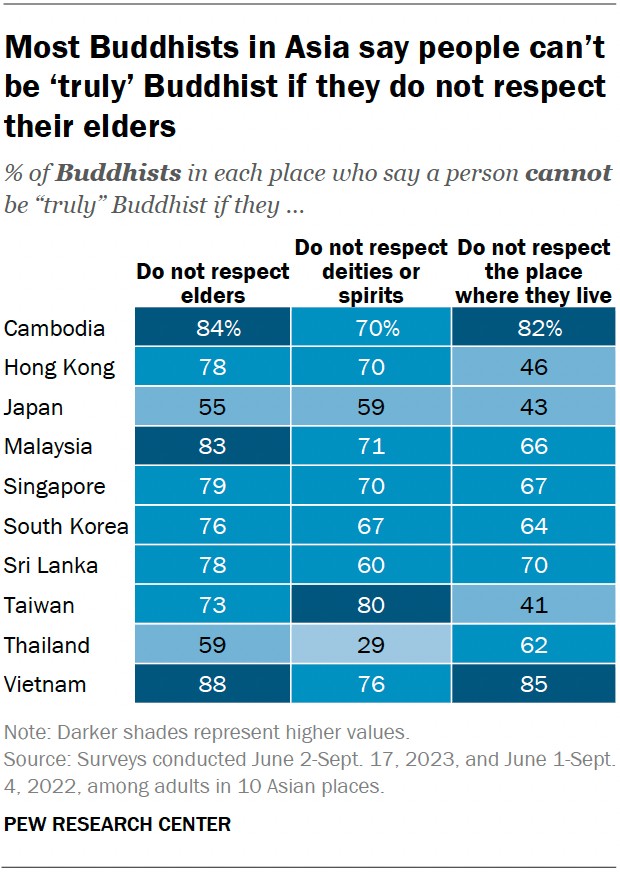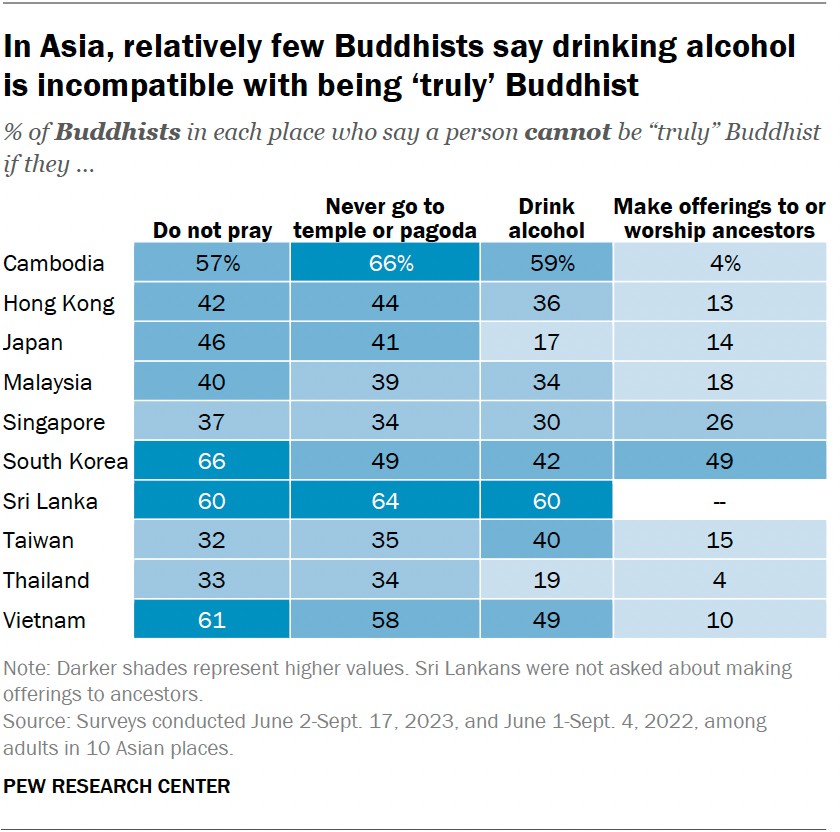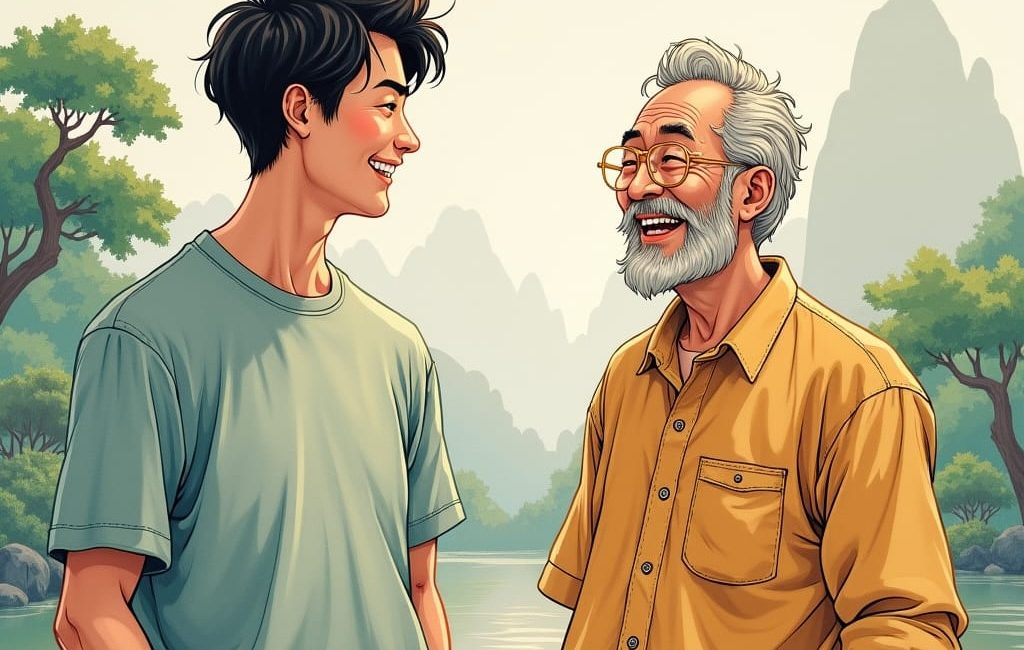“Respect your elders.” According to a recent Pew Research Center survey of Buddhists in Asian countries from 2022–23, that is one of the core rubrics that determines if you are a Buddhist. Among other values that decide how Buddhist someone is, according to B respondents of the survey, are: a belief in spirits and the unseen, and respect for the place they reside in. This resembles a kind of “soft” patriotism.
It is one thing to formally take refuge in the three treasures. While this is common knowledge among the Buddhist communities across Asia, specific practices define “Buddhist affiliation” for respondents, including: prayer, going to the temple or monastery, refraining from alcohol, and making offerings to ancestors.

The researchers, Manolo Corichi and William Miner, propose that the “Buddhist identity” in Asian countries, while nebulous, is delineated by things that one does, and things that one doesn’t do. These, in turn, can be ranked in importance. For example, despite the Fifth Precept being that of refraining from intoxicants, “fewer than half of Buddhists in most places we surveyed say drinking alcohol disqualifies someone from being Buddhist, including no more than two-in-ten in Thailand and Japan.” (Pew Research Center)
Another fascinating point is that respect for elders is commonly known as filial piety, a virtue more commonly associated with Confucianism. Filial piety can denote respect for both one’s parents, as well as the elderly overall. It is possible to attribute the universality of the “revere elders” criterion for Buddhists to the historical influence of Chinese culture on Asian civilization. Sociologists certainly would not attribute the immense importance of filial piety in Chinese culture to Buddhism. Perhaps this is an indicator of how successful the fusion of Confucianism with Buddhism has been over the centuries.

In Asia, Buddhism is not only a religion, but a set of cultural values that roots a person, whether from Sri Lanka or Vietnam, in a sense of “situated continuity.” Despite core teachings about no-self or impermanence, Buddhism in Asia is also about identity, at least about being part of the Fourfold Sangha.
It is comparable to how (especially nowadays) it is not particularly justifiable to call yourself a Christian if one’s behavior is extremely unloving and hateful, even if you have been technically baptized and carry a copy of the Catechism. That Buddhism is associated with a wide range of positively regarded social values, such as revering elders and respecting one’s homeland, is an encouraging sign that despite the decline of religion, Buddhism’s existence as a “cultural membrane” permeating much of Asian societies remains a compelling force.
As the cliché goes, your possessions do not make you a better person, though your behavior does. One might add that (at least in Asia) it is as much what one does, and does not do, that makes you a Buddhist, not just professions of belief or rituals of conversion.
As Bruce Wayne once said in Christopher Nolan’s Batman Begins (2005), “It’s not who I am underneath, but what I do that defines me.” Let that be a wise reminder to anyone who strays into performativity while practicing the Dharma: otherwise known as showing others how Buddhist they are instead of fulfilling the actions that make them Buddhist.
See more
Across Asia, respect for elders is seen as necessary to be ‘truly’ Buddhist
Related news from BDG
Pew Survey Shows Widespread Acceptance of Cultural Diversity in South and Southeast Asia


